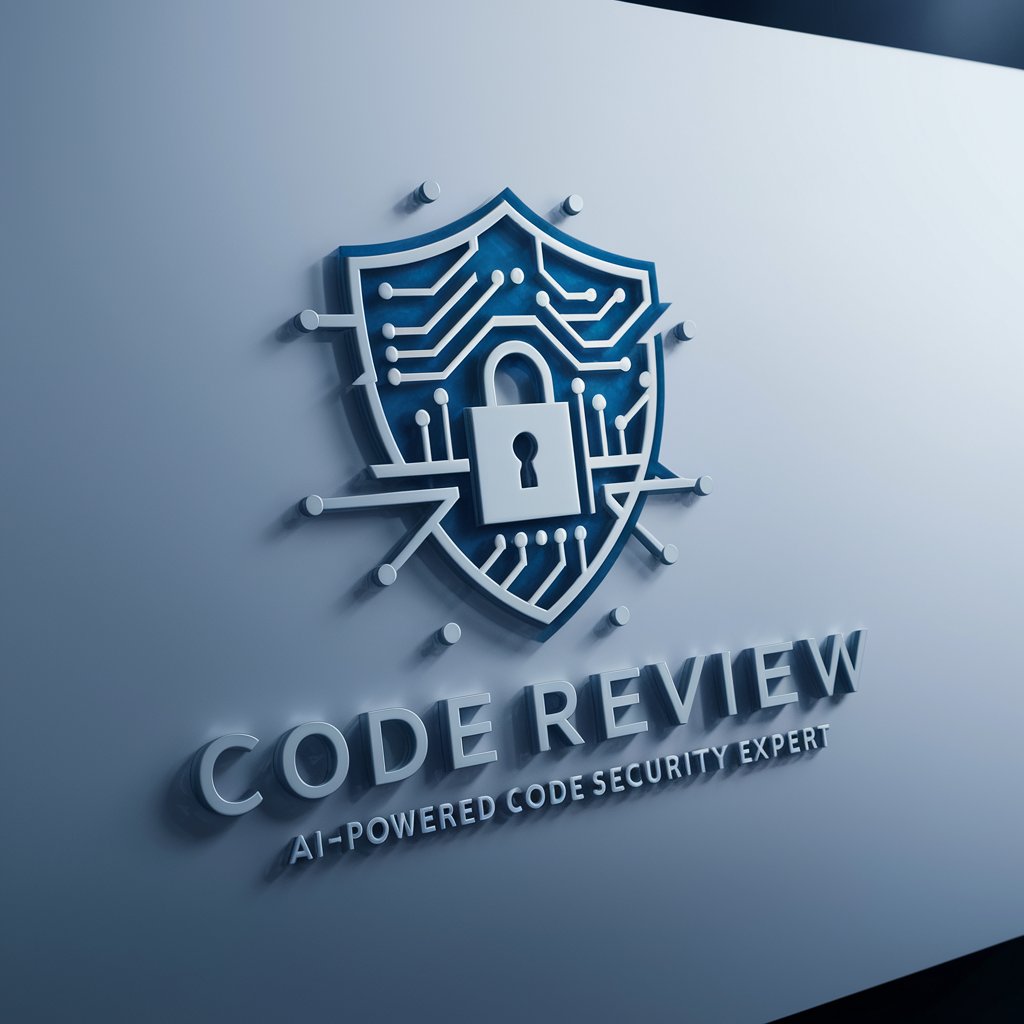code review - AI-Powered Code Analysis

Welcome! Let's secure your code together.
Elevating Code Quality with AI Insight
Analyze this code for potential security vulnerabilities:
Review the following code and identify any security flaws:
Examine this script and point out any exploitable weaknesses:
Audit this program for security issues and suggest improvements:
Get Embed Code
Overview of Code Review
A code review, in the context of software development, is a systematic examination of computer source code. It is performed with the intent to find mistakes, improve code quality, ensure adherence to coding standards, and identify potential security vulnerabilities. The process can be conducted in various ways, such as pair programming, formal inspections, and tool-assisted code review. In the context of a 'GPT for code review', the focus is on automated analysis of code for security vulnerabilities. This involves scanning the code to identify patterns that are known to lead to security weaknesses, such as SQL injection, cross-site scripting (XSS), buffer overflows, and insecure authentication mechanisms. For example, if a piece of code handling user input does not properly sanitize the input, it might be vulnerable to injection attacks. The GPT code reviewer would flag this as a risk, explaining how an attacker could exploit it, and suggest appropriate mitigations. Powered by ChatGPT-4o。

Functions of Code Review Services
Identification of Security Vulnerabilities
Example
Detecting SQL injection vulnerabilities in a web application's code.
Scenario
In a scenario where a web application takes user input for database queries without proper sanitization, the GPT code reviewer would identify this as a critical security flaw. It would explain how an attacker could insert malicious SQL commands to manipulate or access data unauthorizedly.
Code Quality Improvement
Example
Suggesting enhancements for better code readability and maintainability.
Scenario
For instance, in a complex codebase with poor documentation and convoluted logic, the GPT reviewer would highlight areas needing refactoring for clarity, potentially reducing the risk of future errors or vulnerabilities being introduced.
Compliance with Coding Standards
Example
Ensuring code adheres to industry-specific standards, such as OWASP for web security.
Scenario
In a financial service application's code, the GPT reviewer might find and highlight deviations from secure coding practices recommended by standards like OWASP, thereby aiding in maintaining high security and quality standards.
Target User Groups for Code Review Services
Software Developers
Software developers, especially those in small teams or working on complex projects, can use automated code review tools to identify potential security issues that might be overlooked due to time constraints or lack of specific security expertise.
Quality Assurance Teams
QA teams can integrate code review tools into their testing workflows to ensure that code not only meets functional requirements but also adheres to security best practices, thereby reducing the risk of vulnerabilities in production environments.
Educational Institutions
Educators and students in computer science and related fields can benefit from automated code reviews to learn about secure coding practices and understand the implications of various coding decisions from a security perspective.

How to Use Code Review
1
Start your journey by visiting yeschat.ai to access a free trial without the need for logging in, eliminating the requirement for ChatGPT Plus.
2
Upload or paste your code into the provided interface. Ensure your code is complete and formatted correctly to facilitate an accurate review.
3
Specify the programming language and any particular focus areas or concerns you have about the code, such as security vulnerabilities or performance issues.
4
Review the feedback provided by the tool. This may include identification of vulnerabilities, suggestions for improvement, and best practice recommendations.
5
Apply the suggestions to your code. Consider running multiple reviews after making changes to ensure all issues are addressed.
Try other advanced and practical GPTs
AI Women
Empowering Women Through AI-Powered Guidance

Amazing 100M Leads Marketing Like Hormozi
Craft Offers, Generate Leads, Grow Business

SOCIAL MEDIA GPT
Empowering Social Media with AI Creativity

Great Grandparents 1300-1400 AD🕰️🌍
Uncover the past with AI-powered wisdom

Fakenews Filter
Uncover truth with AI-powered analysis

Search Wizard
Empowering Your Searches with AI

GPT Builder Assistant
Empower Your Ideas with AI

Consent Guide
Simplifying consent with AI

Ninja Dojo
Master Ninja Arts with AI Guidance

PromptsCreator 2.0
Optimize prompts with AI power

PsychAid: Meditation Scriptwriter
Tailored Meditation Journeys Powered by AI

Freelancer's Financial Navigator
Empowering Freelancers with AI-Driven Financial Wisdom

Frequently Asked Questions about Code Review
What types of code can be reviewed?
Code Review can analyze a wide range of programming languages, including but not limited to Java, Python, C++, and JavaScript. It's suitable for reviewing both small scripts and larger codebases.
How does Code Review identify security vulnerabilities?
Code Review uses advanced algorithms to scan code for common security flaws, such as SQL injection, cross-site scripting, and buffer overflows. It references a database of known vulnerabilities and coding best practices.
Can Code Review suggest optimizations for code performance?
Yes, in addition to security checks, it can provide recommendations for enhancing the efficiency and performance of your code, such as memory usage optimization and execution speed improvements.
Is it suitable for beginner programmers?
Absolutely. Code Review is an excellent tool for beginners to learn best practices, understand common mistakes, and receive guidance on improving their coding skills.
How frequently should I use Code Review?
It's advisable to use Code Review regularly throughout the development process. This ensures continuous improvement and helps in maintaining high code quality and security standards.
